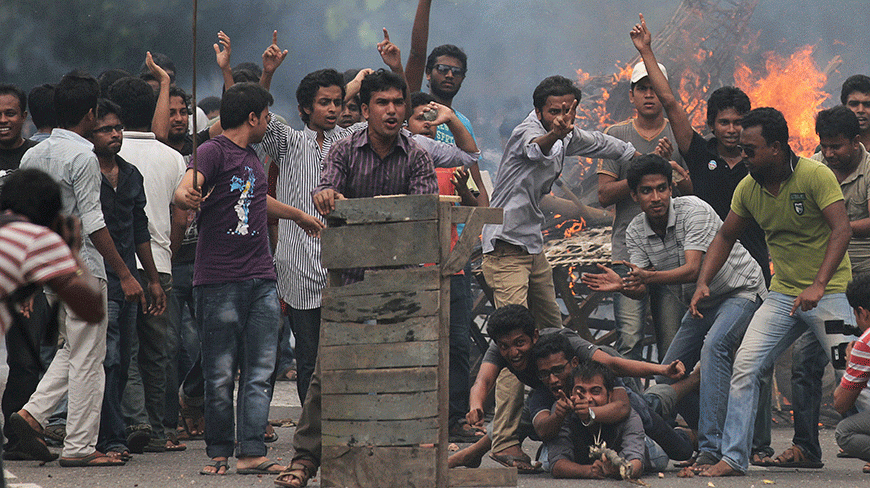The debate about student politics in Bangladesh is not a new one. Every time something terrible happens because of it, much gets said about it in different media, and after a while, almost everyone forgets about it as a new crisis develops. The recent verdict of the Bishwajit murder case has again brought the issue of student politics into the limelight.
Bishwajit Das, a 24-year-old tailor, was hacked to death in broad daylight in December 2012 while he was on his way to work at Shakhari Bazar, Dhaka. On that fateful day, there was a blockade called by the opposition BNP, and as two crude bombs exploded near him, Bishwajit started running.
A group of Chhatra League men wrongly identified him to be an opposition activist and beat him with sticks and rods. Then he was brutally hacked with machetes for over 20 minutes, which caused his death. This happened in front of hundreds of people including law enforcers, and got a lot of media coverage, and placed the ruling party in a tight spot.
One year later, in December 2013, the speedy trial tribunal sentenced eight of the accused to death and 13 others to lifetime imprisonment. There was a sigh of relief from most Bangladeshis who were sceptical before the verdict came out since legal decisions in this country hardly go against ruling party men.
I would like to appreciate the government letting the law follow its course in this case. However, as a concerned citizen of this country, I demand quick implementation of the verdicts, so that it serves as a strong warning message to future offenders.
This brings us to the state of student politics in Bangladesh. Since the inception of this country over 40 years back, students have been used time and again by almost all major political parties and their politicians for their own petty interests. And this has done more harm than good.
Gone are the days of the 1952 language movement, the 1971 War of Independence, or the 1990 fight against autocracy, when students played a pivotal role in saving the country from going to complete disarray. Student politics, at one time, was the pride of the nation. That is no longer the case – it has caused too many deaths, both of people actively involved and not involved in politics. Too many injuries, too many hours of classes and academic days have been lost, and there has been too much financial and economic loss. Those who still claim that student politics is something to be “proud of” because of its glorious past either live in delusion, or choose to do so because of their own petty interests.
The very same day that the Bishwajit murder verdict was given, students of the same political affiliation had beaten up a non-political student at Dhaka University, suspecting he was from the opposition. The accused of the Bishwajit murder case, when interrogated, confessed to the police that they acted so brutally to impress the BCL “committee” of Jagannath University, with hopes of securing positions there. Such behaviour has become a benchmark of student politics leadership now. Do we really want this?
The Chhatra League alone is not to be blamed. We are no strangers to the Shibir’s (student wing of the Jamaat) acts of cutting the tendons of the hands and legs of their political opponents. There are also plenty of instances of misdoings by members of the Chhatra Dal, the student wing of BNP.
The list of atrocities by members of student wings of political parties is endless. These offenders are basically our own brothers and sisters, our own children. We want them to go to college and university to study, be enlightened, and become good human beings.
We don’t want them to become paid political goons who would harm the people of the country, and harm themselves in the end. I think it is high time that student politics was banned in all forms in Bangladesh. This would be beneficial for everyone in the country, and I cannot think of any reason why it should not be done.
Source: Dhaka Tribune










